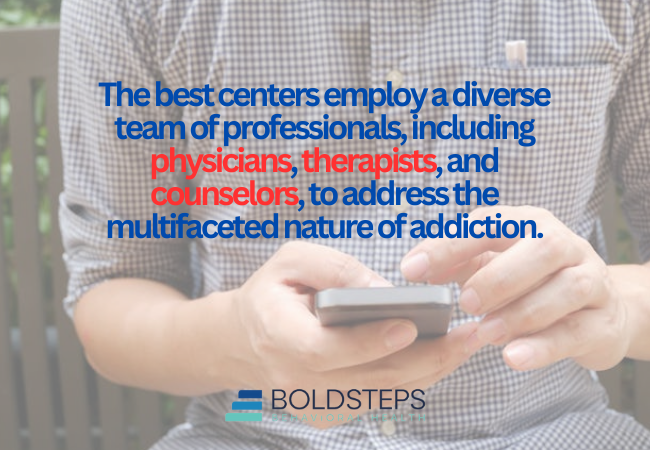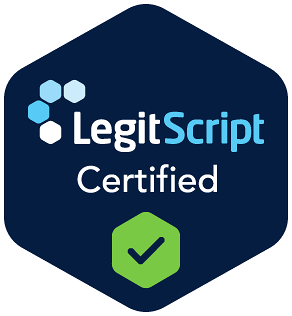Addiction is a deeply personal and complex condition, affecting individuals physically, emotionally, and socially. Finding the right treatment can be life-changing, but with so many rehab centers across the United States, how do you know which one is right for you? The best rehab centers offer much more than just treatment—they provide comprehensive, personalized care designed to help individuals achieve long-term recovery.
At Bold Steps Behavioral Health, we aim to be among the most trusted names in addiction treatment. Through individualized programs, evidence-based therapies, and compassionate support, we guide individuals toward a healthier, sober life. In this blog, we’ll explore what makes the best drug and rehabilitation centers stand out and why choosing the right facility is crucial to a successful recovery journey.
The Importance of Choosing the Right Rehab Center
Not all rehab centers are created equal. The right facility can mean the difference between temporary sobriety and lasting recovery. A great rehab center doesn’t just treat the addiction; it addresses the underlying causes, equips individuals with coping mechanisms, and provides ongoing support.
Key factors to consider include:
- Comprehensive Care: Does the center offer detox, therapy, and aftercare?
- Personalized Treatment Plans: Are programs tailored to individual needs?
- Qualified Staff: Are the professionals licensed and experienced in addiction treatment?
- Environment: Is the facility a supportive and peaceful place to heal?
The best rehab centers excel in all these areas, providing clients with the tools they need to rebuild their lives.
Comprehensive and Individualized Treatment Plans
One of the hallmarks of the best rehab centers is their commitment to personalized care. Addiction is not a one-size-fits-all issue, and recovery plans should reflect that.
What Individualized Plans Include:
- Comprehensive Assessments: Before treatment begins, individuals undergo thorough evaluations to understand their physical health, mental health, and substance use history.
- Dual Diagnosis Treatment: Many people struggling with addiction also face mental health disorders like anxiety, depression, or PTSD. Integrated care addresses both issues simultaneously for a holistic approach to healing.
- Customizable Levels of Care: From Partial Hospitalization Programs (PHPs) to Intensive Outpatient Programs (IOPs) and Outpatient Treatment, the best centers provide flexible options based on each client’s unique needs.
This approach ensures that individuals receive care tailored to their circumstances, increasing the likelihood of successful outcomes.
Medically Supervised Detoxification
Detoxification is often the first step in addiction treatment. It involves safely removing substances from the body while managing withdrawal symptoms. Detox and rehab centers are equipped to handle this critical phase with professional medical oversight.
Why Medically Supervised Detox Matters:
- Safety: Withdrawal from substances like alcohol, opiates, or benzodiazepines can be dangerous and even life-threatening.
- Comfort: Medical professionals can administer medications to ease symptoms and ensure individuals are as comfortable as possible.
- Preparation for Therapy: Detox clears the body of substances, allowing individuals to focus fully on the therapeutic aspects of recovery.
Examples of Detox Services:
- Opiate Addiction Treatment: Includes medication-assisted treatment (MAT) with methadone, buprenorphine, or naltrexone to manage cravings and withdrawal.
- Alcohol Addiction Treatment: Helps individuals safely navigate withdrawal symptoms like seizures and delirium tremens.
- Benzodiazepine Treatment: Involves a gradual tapering process to prevent severe withdrawal effects.
- Stimulants Treatment: Addresses psychological symptoms like anxiety and depression that often accompany stimulant withdrawal.
The best rehab centers prioritize safety and support during this crucial phase, ensuring individuals are physically and mentally prepared for the next steps.
Evidence-Based Therapies for Long-Term Sobriety
Therapy is at the core of effective addiction treatment. The best rehab centers utilize evidence-based approaches to address the root causes of addiction, promote self-awareness, and develop healthy coping mechanisms.
Common Evidence-Based Therapies:
- Cognitive Behavioral Therapy (CBT): Focuses on identifying and changing negative thought patterns and behaviors.
- Dialectical Behavior Therapy (DBT): Teaches emotional regulation and stress management techniques.
- Motivational Interviewing (MI): Encourages individuals to explore their motivations for change and build confidence in their ability to recover.
- Group Therapy: Provides a supportive community where individuals can share experiences and learn from one another.
- Family Therapy: Rebuilds trust, improves communication, and involves loved ones in the recovery process.
By combining these therapies with holistic approaches like mindfulness and yoga, rehab centers can provide a comprehensive treatment experience that addresses both the mind and body.
Specialized Programs for Different Substances
Addiction comes in many forms, and each substance presents unique challenges. The best rehabilitation centers for drugs offer specialized programs tailored to the specific needs of individuals struggling with:
- Opiate Addiction Treatment: Combines MAT, therapy, and relapse prevention strategies.
- Alcohol Addiction Treatment: Focuses on detox, therapy, and rebuilding life skills to maintain sobriety.
- Benzodiazepine Treatment: Provides gradual tapering and mental health support for dependency on medications like Xanax or Valium.
- Stimulants Treatment: Addresses the psychological and behavioral effects of substances like cocaine or methamphetamine.
Specialized care ensures that treatment plans are relevant and effective, increasing the likelihood of sustained recovery.
Emphasis on Relapse Prevention
Relapse prevention is a cornerstone of long-term sobriety. The best drug abuse treatment centers provide clients with the tools they need to recognize and manage triggers, build resilience, and maintain progress.
Relapse Prevention Strategies:
- Trigger Identification: Helping individuals understand the situations, emotions, or environments that may lead to relapse.
- Healthy Coping Mechanisms: Teaching techniques like mindfulness, stress management, and emotional regulation.
- Aftercare Programs: Providing ongoing support through therapy, alumni networks, and relapse prevention groups.
By preparing clients for real-world challenges, rehab centers empower them to stay on track and achieve their recovery goals.
Holistic and Wellness-Focused Care
Recovery is about more than just stopping substance use; it’s about building a healthy, fulfilling life. The best rehab centers incorporate holistic therapies that promote overall well-being.
Holistic Approaches Include:
- Mindfulness and Meditation: Enhances self-awareness and reduces stress.
- Physical Fitness Programs: Improves physical health and boosts mood.
- Nutritional Counseling: Supports physical recovery and helps individuals develop healthy eating habits.
- Creative Therapies: Provides outlets for self-expression through art, music, or writing.
These therapies complement traditional approaches, creating a balanced recovery experience.
The Role of Family in Recovery
Addiction impacts not just the individual but also their loved ones. The best rehab centers involve families in the recovery process through:
- Family Therapy: Repairs relationships, rebuilds trust, and fosters understanding.
- Educational Workshops: Helps loved ones understand addiction and learn how to provide effective support.
- Family Support Groups: Offers a safe space for families to share experiences and learn from others.
A strong support system can make a significant difference in an individual’s recovery journey.
Why Bold Steps Behavioral Health Stands Out
At Bold Steps Behavioral Health, we are proud to be among the best rehab centers in New Hampshire. Here’s what sets us apart:
- Personalized Care Plans: Tailored to each individual’s unique needs, ensuring effective treatment.
- Comprehensive Programs: From detox to aftercare, we provide a full continuum of support.
- Evidence-Based Therapies: Combined with holistic approaches to address all aspects of recovery.
- Experienced Team: Compassionate professionals with expertise in addiction and mental health.
- Family-Centered Care: Involving loved ones to create a strong foundation for recovery.
- Tranquil Environment: A safe and peaceful space designed to foster healing and growth.
Take the Bold Step Toward Recovery
Choosing the right drug rehabilitation center is a critical decision. At Bold Steps Behavioral Health, we are dedicated to helping individuals overcome addiction, rebuild their lives, and achieve lasting sobriety.
Contact us today at (603) 915-4223 or visit Bold Steps Behavioral Health to learn more about our programs, including alcohol treatment programs, detox and rehab centers, and more. Let us help you take the bold step toward a brighter future.
Frequently Asked Questions (FAQs)
What types of therapy are available at the best rehab centers?
Evidence-based therapies like Cognitive Behavioral Therapy (CBT), Dialectical Behavior Therapy (DBT), group therapy, and holistic approaches such as mindfulness and yoga are common.
How do rehab centers address different types of addiction?
The best rehab centers provide specialized programs for various addictions, including opiates, alcohol, benzodiazepines, and stimulants, ensuring effective and targeted care.
What levels of care do the best rehab centers offer?
They typically offer a range of programs, including Partial Hospitalization Programs (PHPs), Intensive Outpatient Programs (IOPs), and Outpatient Treatment, to meet diverse needs.
Do rehab centers support relapse prevention?
Yes, relapse prevention is a core component. Strategies include identifying triggers, teaching coping skills, and providing aftercare services like alumni support groups and therapy.
Can family members be involved in the recovery process?
Absolutely. Many rehab centers include family therapy and education programs to strengthen relationships and create a supportive environment for recovery.
How do holistic therapies help in addiction recovery?
Holistic therapies such as meditation, art therapy, and physical fitness promote emotional well-being and help individuals develop healthy habits for a balanced life.
Why choose Bold Steps Behavioral Health?
Bold Steps offers personalized care, evidence-based therapies, and a tranquil environment, making it one of the best rehab centers in New Hampshire for comprehensive addiction treatment.
How can I start my recovery journey with Bold Steps Behavioral Health?
Contact us at (603) 915-4223 or visit Bold Steps Behavioral Health to learn more about our programs and take the first step toward lasting recovery.



